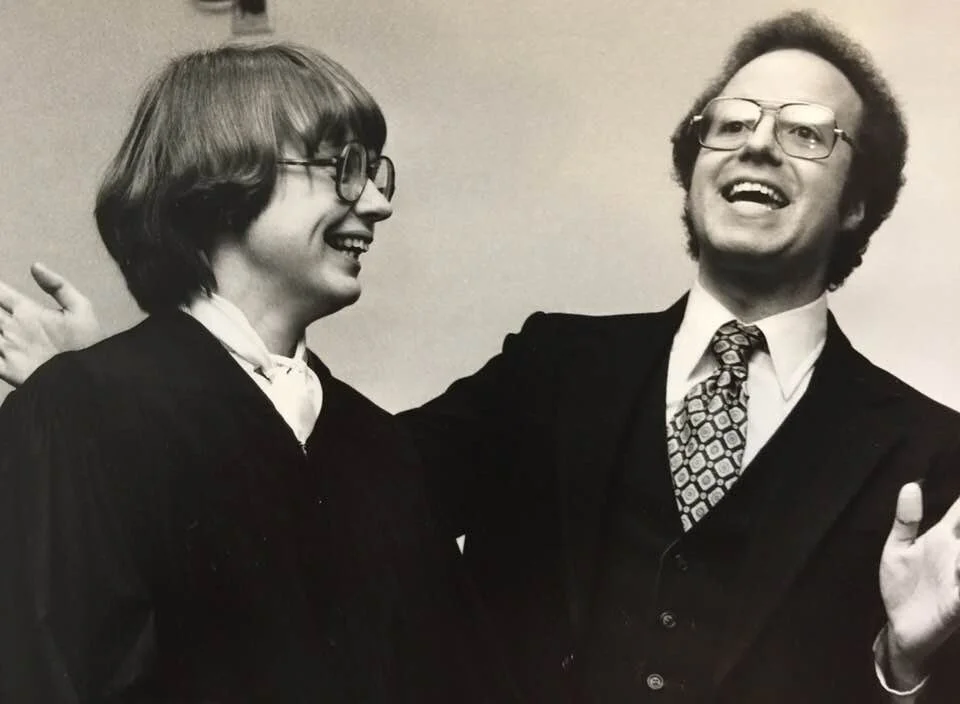Bias Fuels Rage
Installation ceremony of Judge Carolyn Hayek, 1982
Denied seating in a downtown Seattle private club dining room, subjected to comments about how damaging “affirmative action” is to the state patrol and the courts, a judicial boycott of a workshop on domestic violence, being told that “my problem” was refusing to ignore the issue of my sex, derogatory remarks about me posted on a bulletin board at the local police precinct on account of a decision which found misconduct by the local police, being shunned by another judge because I suggested the court needed to hire black employees, being subjected to comments ridiculing black officials who had control over court funding and staffing – my “white privilege” has benefited me in many ways, but my status as a “first ever” female attorney in a variety of legal positions has subjected me to many experiences that have a startling similarity to the stories shared during the current advocacy efforts of Black Lives Matter.
I have been hesitant to compare my personal experiences with bias and discrimination to those of African Americans, because I know they are of a much lesser degree and frequency, but my personal experiences are a part of what gives me empathy for the repeated stories we hear about injustice today, that has in the past been hidden from or discounted by society.
One of my first “ah hah” moments about discrimination occurred the first week of my experience as a summer intern in our state government in Olympia. I didn’t know any of the other interns and was eager to get acquainted. However, I was mystified by some of the comments of the other interns. There was joking about how each of them had achieved their position. I finally figured out that most (or all) of them were the son, daughter or friend of someone in a political position of power, except the small number of participants who were racial minorities. The “minority” participants appeared to me to be the only individuals who were highly qualified and had gone through an actual vetting process. My “white privilege” prevented me from noticing that I also had an “insider” advantage. I was not connected to any local politician or government official, but my prestigious law school had helped me get a grant from the Ford Foundation that funded my summer position.
The experience that resulted in the greatest “rage” on my part, was the embarrassment of being part of a business group that was denied seating for a meeting scheduled by my law firm, at a private club, where a partner of the firm was president of the club and many firm members were members. Our group was about six people, including two executives of a major client. We were left waiting in the foyer of the restaurant for an awkwardly long time and ultimately seated outside the normal dining room at a folding table hastily assembled for us. The explanation was that women were not allowed in the dining room. I felt mortified by this experience and believed my law firm should apologize to me about the experience or at least acknowledge it was wrong for the firm to utilize the services of a private club that did not allow women to fully participate.
The dining room experience might not seem like a big deal, but what stays with me was how angry I felt afterwards and how determined I became to seek retribution when there was no apology or effort to correct the wrong I felt had been done. That anger fueled an effort to get Washington Women Lawyers to write letters of complaint to the three downtown Seattle clubs regularly patronized by the legal community without allowing membership or full participation by women. The protest made by Washington Women Lawyers prompted a full-page article in the Seattle Times explaining the problem. When the news article came out I was surprised to find that I had conflicted feelings, vindication that the discriminatory policies had been publicly exposed and a new type of embarrassment because it cast my firm in a bad light. I actually was proud to work for that firm in many respects, despite my desire for them to correct bad practices.
When I think of my emotional response to the dining room incident, I realize how harmful it must be to be subjected to repeated slights, harassment and even threats for unfair and discriminatory reasons. In comparison to what many African Americans have experienced, what I went through was minor and isolated. However, there were many other relatively minor experiences of discrimination, based on my sex, my advocacy for minority representation, or simply advocacy for judicial reform that wore me down. Some of that advocacy contributed to my being fired from my law firm and to my resignation as a King County District Court judge. A person cannot do their best work, maintain good health and achieve career goals when a significant amount of energy gets diverted to counteracting personal and societal injustices.
I support Black Lives Matter, judicial reform and the Equal Rights Amendment. I also support well-crafted affirmative action programs designed to correct past injustices. I acknowledge the harmful effects of White Privilege and urge all who have benefitted from it to find a way to help balance the scales of justice, achievement and personal well-being of all of humanity.
Carolyn Hayek, Retired Judge

